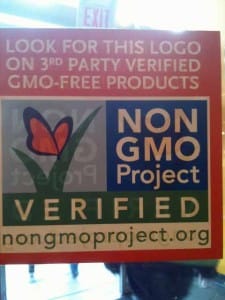Consumer Reports
by Niraj Chokshi
 |
Advocates of labeling for genetically modified foods are getting some heavyweight support from Consumer Reports, the nonprofit known for its comprehensive product reviews.
On Tuesday, the group and its policy arm Consumers Union began touting a pair of studies on consumer behavior and product claims, the latest in a string of efforts supporting genetically modified food labeling requirements on the ballot in Oregon and Colorado. While Consumer Reports has been involved in other policy fights before, the push for a GMO labeling mandate is the only ballot issue the nonprofit is involved with this fall.
“Foods that are frozen, made from concentrate or homogenized are all required to be labeled. Why shouldn’t products containing GMOs also be labeled?” Jean Halloran, director of food policy initiatives at Consumers Union, said in a statement. “Shoppers are being misled when they buy products labeled ‘natural’ given their expectation that they are getting food that contain no GMOs.”
At a news conference in Portland, Ore., Tuesday, Consumer Reports unveiled the results of a new investigation of the packaging claims of more than 80 common products. The study found that food labels offer a wide range of meaning. Nearly two in three U.S. residents equate “natural” with non-GMO, according to an earlier Consumer Reports survey, but the new investigation found that the label “natural” reveals little about food products.
“While many consumers believe that the Natural label on a product means that it contains no GE ingredients, this label actually has no meaningful definition for processed foods and is not verified,” the nonprofit’s Food Safety and Sustainability Center wrote in its report. (You can view a list of the products reviewed here.)
The most trustworthy claims, Consumer Reports found, are those certified by the Non-GMO Project, a third-party group that certifies products as containing 0.9 percent genetically modified organisms or less. Organic claims were slightly less meaningful, the study found, while general non-GMO claims were only somewhat meaningful.
The results of the investigation were touted alongside a survey of more than 1,000 U.S. adults conducted earlier in the year. That poll found that nearly three in four U.S. residents felt that avoiding GMOs was important or very important to them while grocery shopping.
Consumer Reports and Consumers Union have for weeks been beating the drum for GMO labeling requirements. Last month, Consumers Union released a review of economic studies of the costs of labeling, finding that the middle value of all the costs identified in economic analyses was $2.30 per person per year. And a few weeks later, the biggest proponent of the Oregon measure, the Yes on 92 campaign, launched its first pair of ads, one of which featured Consumer Reports senior scientist Michael Hansen advocating for labeling.
In a letter to the Federal Trade Commission on Monday, Consumer Reports asked the agencey to investigate the non-GMO claims on packages of Xochitl Totopos de Maiz corn chips after finding several instances of genetically engineered corn in the product.
In Oregon, proponents of Measure 92, which would require GMO labels, have received $5.7 million in contributions so far, according to the Oregonian. Opponents have received $3.3 million. In addition to its support of the ballot measures in Oregon and Colorado, Consumer Reports backed the GMO bills that became law in Vermont, Maine and Connecticut.

